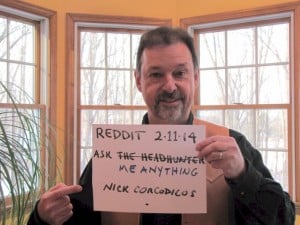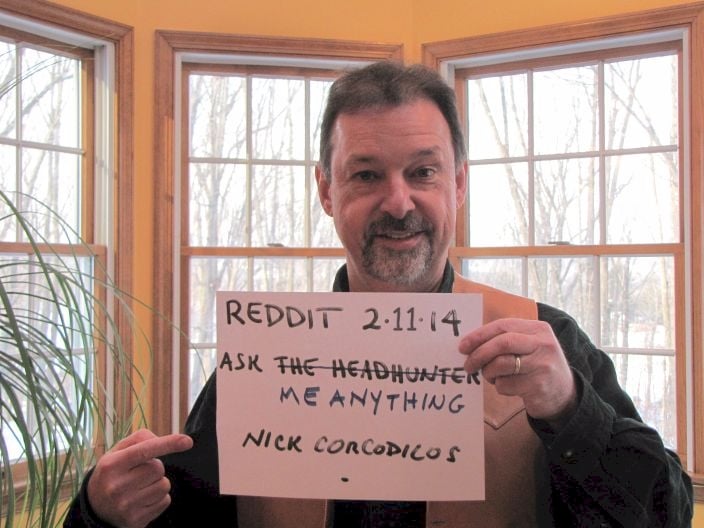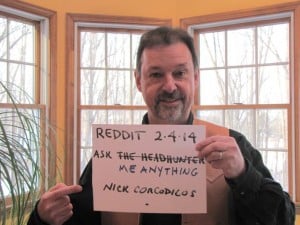When your job search stalls, two things stand out as big culprits: resumes and wishful thinking. Last week we discussed how your resume can hamper your job search. In this edition — Part 2 –, we’ll discuss how slowpoke employers can distract you from your goal of landing a good job.
In the March 18, 2014 Ask The Headhunter Newsletter, a reader asks what to do about employers who take forever:
I’ve been interviewing with a company for about a month, including several phone calls and local interviews, and a flight to their HQ for five more interviews. It’s been three weeks since our last meeting. They say they are working through my references, but my references confirmed they have been contacted. All the while, the company is actively interviewing other candidates for the position I interviewed for. Am I’m being strung along until someone better shows up, or what? Also, how often should I follow up with them?
Nick’s Reply
There’s no explaining why a company takes so long — you’ll drive yourself crazy trying to figure it out. Don’t. Are you talking yourself into believing “this is a sure thing?” Don’t.
Is the employer hedging, stringing you along while it looks for a better candidate? Why worry about it?
Your question appears in a different form in Fearless Job Hunting, Book 8, Play Hardball With Employers, in the section titled “How can I push the hiring decision?” Here’s an excerpt from my advice:
This is a very common mistake when job hunting. The next act in the script is normally “the offer,” so job candidates ignore the clear signal to leave the stage. They desperately launch into their next speech — even when there’s nothing doing. I’ve seen top executives in utter denial when the employer stops the process, and they make fools of themselves trying to “get the process back on track, because I really want this job.”
Don’t try to push an employer that has told you it doesn’t want to go. Instead, move yourself toward your next opportunity. (If they call you back later, that’s great — if you’re still available.) Otherwise, you’ll waste precious time on a company that can’t make a decision. Be grateful they were honest about it. But move on. If you pester them, you’ll tick them off. (“Didn’t this person hear us? We’re not making a decision right now. We’re busy.”) Annoying puppies get kicked — no matter how enthusiastic they appear.
Reprinted from Fearless Job Hunting, Book 8, Play Hardball With Employers, “How can I push the hiring decision?” p. 14. Book 8 includes:
- Put the manager on notice
- Skip The Resume: Call the CEO
- Do they owe me feedback after an interview?
 What’s the secret to the thank-you note?
What’s the secret to the thank-you note?- Avoid Disaster: Check out the employer
- How can I push the hiring decision?
- Playing hardball with slowpoke employers
- One interview stalled, one moving too fast
- Line up your next target
- Thanks is not enough
- Due Diligence: Don’t take a job without it
- Judge the manager
- Get an answer at the end of the interview
- PLUS: 8 How to Say It tips
- PLUS: 4 sidebars packed with advice to give you the insider’s edge!
I’ve seen people put their job search on hopeful hold for weeks if not months, waiting for “the job I really want” to come through. When the slowpoke employer doesn’t come through with a job offer, they realize they’ve wasted precious time. Their motivation and job-hunting energy has waned. Their enthusiasm has turned to helpless depression. And it all shows as they try to revive a moribund job search.
Don’t take a rest while you wait for just one employer to “decide,” no matter how promising the situation looks!
But there’s another important reason why “moving on” is a good strategy. You might find that the employer you’ve been waiting on is just a slowpoke who finally gets back to you with an offer. If, rather than waiting, you have cultivated other opportunities, you’re suddenly in a much stronger negotiating position. With other options in play, now you have choices. Having options may empower you to negotiate a better offer — and even to avoid taking a job you don’t really want, just because there’s nothing else.
Play hardball with slowpoke employers. It’ll keep you out of trouble, and it’ll make you feel better, too. Follow up once. If an employer is being a slowpoke and hedging its bets by trying to find better candidates for a job, your best bet is always to control your job search by continuing your efforts to find more opportunities.
What’s the excuse the employer gives you for its decision delay? It may be legit, or it may be a hedge so it can find a better candidate. Who cares? How do you spend your time while waiting on a job offer?
: :












